The highs of pandemic-driven demand are behind it, but HelloFresh’s UK CEO believes it can still offer solutions for time-poor shoppers
Delicious aromas fill the ground floor of HelloFresh’s London HQ, as development chefs work hard on refining the dishes customers will recreate at home using their step-by-step instructions.
The team recently nailed a new range of regional Italian dishes, which are “incredible”, says the company’s UK CEO Philip Doran. “I genuinely can’t wait for them to come out.”
Exciting customers with “more choice, more personalisation, new ingredients, new flavours” is a big priority for the meal kit brand, explains Doran, who took up his role in January. Another is growing the overall customer base. “We’ve got to challenge ourselves: how do we get more customers to try it? And how do we get people coming back week to week?”
Meal kit brands rode the crest of the wave during the pandemic, which brought an “absolute explosion” in demand. But that period is now well and truly behind them. The latest HelloFresh global results showed a 12% decrease in order numbers and tumbling profits.
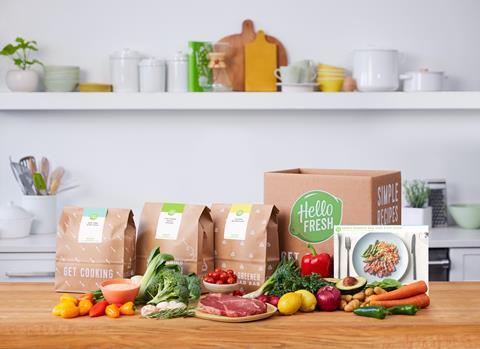
Thankfully, Doran is experienced at navigating choppier waters – quite literally, having spent his youth with the Irish Olympic sailing development team.
While he eventually left the boats behind for more corporate roles, it’s been invaluable experience for joining HelloFresh, he says: “You’ve got to respond to changing conditions, react to new features and you’re not going around the racecourse on your own. There’s other boats, and every now and then people crash into you. Things go wrong, things break.”
Sailing not only helped him develop “an ability to deal with changing conditions, but also stressful situations and things outside of your control”.
“You’re never going to pull people away from the supermarket completely”
Doran was “employee zero” as CEO for Ireland when the brand launched there in 2022, a role that even included packing the first thousand recipe boxes and getting “an absolutely intensive crash course in what it means to provide an excellent meal kit experience”.
Founded in Berlin in 2011, and arriving in the UK the following year, HelloFresh had launched in 17 markets on four continents by the time it reached Ireland. As such, there was an existing ‘new country launch playbook’ from HelloFresh HQ, but “in the food industry, the blueprints often go out the window pretty quickly”, Doran says.
Read more on Hello Fresh:
-
HelloFresh cuts profit forecast as sales fail to deliver
-
What supermarkets can learn from Gousto and HelloFresh
The launch was a mix of “startup hustle backed by a very capable organisation with good tools and good resources,” he remembers. “One of our big advantages is we’re able to leverage global expertise, a global network. People would be surprised how different the operation is across different markets.”
The brand carefully tailors its approach according to unique cultural preferences, he explains, swapping dishes in and out to reflect regional tastes.
“Dishes that work in one market wouldn’t work in another. Ingredients we can source in some markets we can’t in others. ”
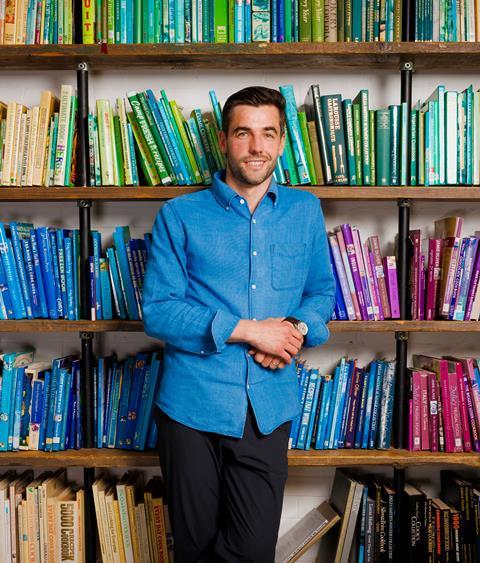
Born: Dublin
Lives: London
Family: Wife Bella and our dog Brego
Potted CV: Six years in the Irish Sailing Team Olympic development squad; went to Ethiopia to support a project by the Department for International Development; McKinsey consulting for several years; director of product strategy and commercialisation at Indeed.com; HelloFresh from 2022
Career highlight: Our recent ‘customer day’, where we invited a number of our most loyal UK customers to our office. It was incredibly energising to spend time with our customers
Business icon: My grandfather
Best advice received: Assume you’re missing something; there’s always more to learn
Item you couldn’t live without: Coffee grinder
Hobbies: Music, sailing, walks with my wife and our dog
Favourite film: The Godfather
Favourite album: Rumours, Fleetwood Mac
Favourite restaurant: That’s Amore in Monkstown, Dublin
Favourite HelloFresh recipe: A recent standout was a Caribbean-Style Spiced Salmon with Salsa and Slaw
Building from the ground up
Arriving to lead the UK business in January this year – following former UK CEO Adam Park’s move to HelloFresh’s prepared, microwaveable meal delivery service Factor in the US – Doran’s experience in Ireland gave him a “really helpful grounding” in what it takes to build a business “from the ground up”.
“When you do something from zero, you really, really think about what that customer experience looks like. I can leverage that closeness to the customer that you get in a startup environment that’s harder to experience in a more established business,” he says.
Doran’s arrival came shortly after the announcement that HelloFresh was closing its distribution centre in Nuneaton – its biggest in the UK, nicknamed The Beehive – affecting 900 jobs.
He insists the move should not be taken as a sign of slowing demand – though UK customer numbers were not shared – but rather a focus on more automated, AI-powered alternative sites. “It allows us to do a lot more in terms of complexity and flexibility for customers,” Doran says. “It’s more advanced, more sustainable, a super-energy-efficient building. We’ve ramped up investment in the UK on the production side.”
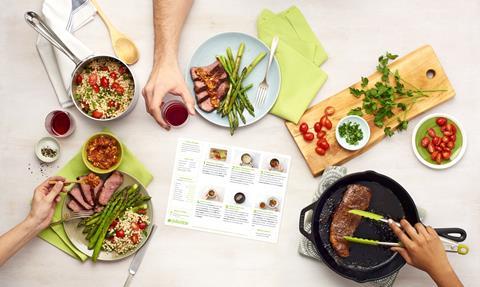
HelloFresh needs to be bold. It has stiff competition in the meal kit market in the UK, from established players such as Gousto and Mindful Chef, as well as more specialist offerings like Abel & Cole, Grubby, Riverford Organic and Pasta Evangelists.
Nonetheless, according to Doran, “the real competition isn’t necessarily other meal kit providers, it’s other models”. While a discount code or door knock might tempt a consumer to switch from one offering to another, trying to “convert people to the meal kit concept” is much harder, he says.
“[The meal kit model] isn’t brand new, but it’s only about 15 years old, versus traditional models like takeaway, grocery and so on, which are much more established,” he explains.
Read more Big Interviews:
-
Elise Seibold: ‘Suntory failed its customers in 2024’
-
How Joanna Allen got freefalling Little Moons back in control
-
How Katie Secretan is steering Nisa to its new life as Co-op Wholesale
-
How NFU president Tom Bradshaw took over the baton from Minette Batters
Compared to traditional retail, trying out a recipe box brand for the first time is “very different to seeing a shop on the street and walking in”, he adds. “So, how do we design an experience that solves a problem for them? That’s still our challenge and opportunity in the UK.”
Retaining that customer once they’ve made the leap compounds the challenge. “It’s not like buying a one-off pair of jeans that you won’t get again until next year,” Doran says. But “there’s an opportunity for us to re-earn that customer’s trust every single time we deliver a box. What we’re trying to build is a habit for customers – being something they keep coming back to again and again.”
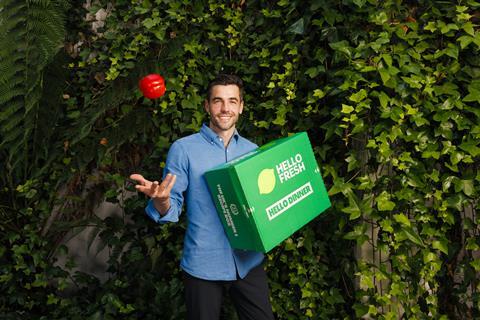
There are tailwinds. The rise of grocery e-commerce, for one. Plus consumer concerns about healthy eating, UPFs and the desire to “leverage nutritious, home-cooked meals”.
To this end, in March HelloFresh introduced more premium proteins, such as salmon, to its menu at no additional cost, and began ensuring all meals include at least two fruits or vegetables.
While rivals like Gousto claimed the “traditional grocery model is broken” in a major TV ad campaign this month, Doran says “you’re never going to pull people away from the supermarket completely. That’s not necessarily what we’re trying to do. We’re trying to solve a customer problem around midweek dinners.
“Firstly, they know exactly how much they’re going to spend on dinners every week [with us]. Secondly, we give them back time.”
Coupled with an elevated customer experience versus the HelloFresh that surged in popularity during the pandemic, it’s enough to put the wind in their sails, believes the former sailor.
“HelloFresh now versus HelloFresh five years ago is a completely different experience,” Doran insists. “The simplicity of experience keeps people coming back. That means receiving the ingredients in a box and making them into a meal in six easy steps.” All thanks to the chefs that have done the hard work for them.







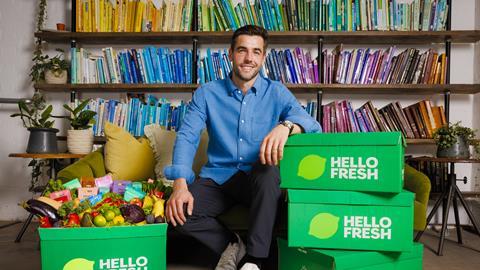






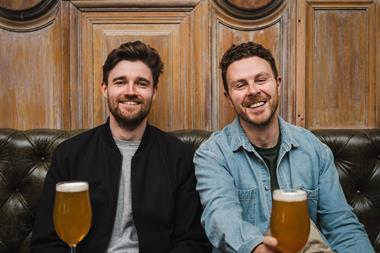
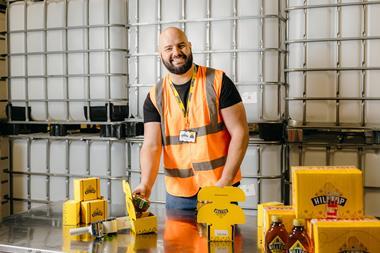
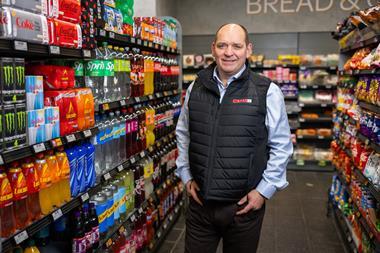
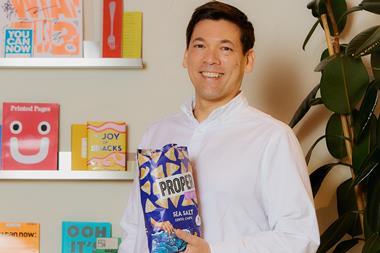
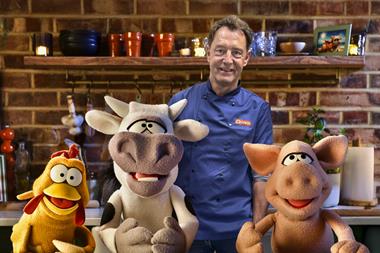
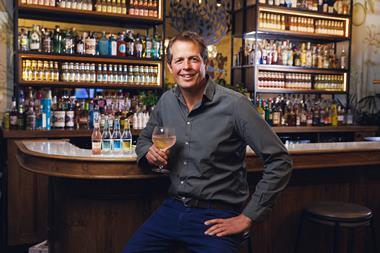
No comments yet